Now Hear This is a monthly A&R column that provides you with exciting new sounds we discovered through the innovative new music platform Groover.
Each month, you can expect a varied bouillabaisse of songs from a vast spectrum of artists from all over the globe, regardless of genre or geography.
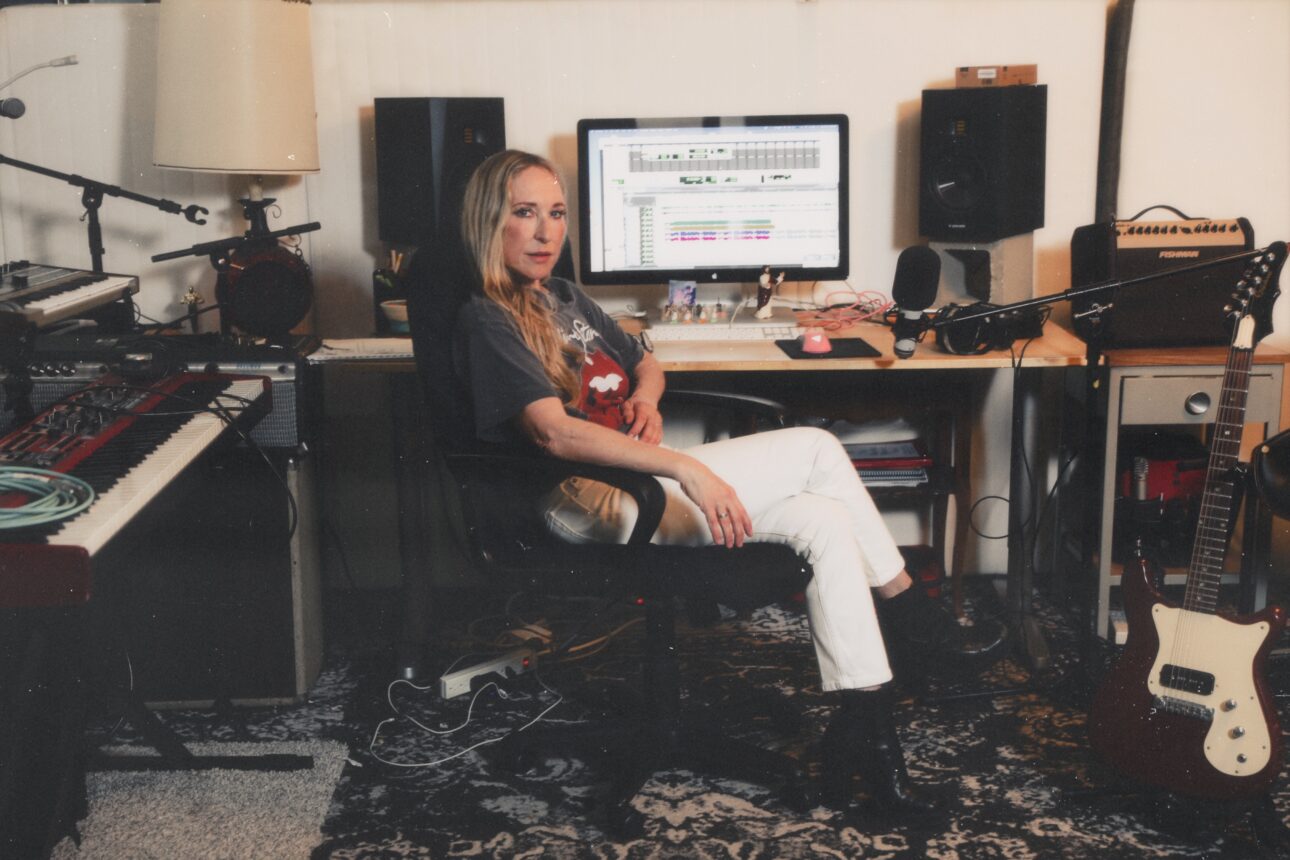
Tamar Berk
Sounds like: A dreamy blend of singer-songwriter pop and synth-driven new wave that feels akin to ‘Til Tuesday if they were recording in the 2020s for Dead Oceans. Fans of Japanese Breakfast should definitely check out her excellent new album OCD.
Interview:
Describe your approach to music and how you would explain your sound to others.
I’ve heard melodies in my head for as long as I can remember—since I was a kid. They show up in flashes, sometimes fully formed, sometimes just a tiny spark. I’m pretty disciplined about writing, recording, and producing, but the truth is there isn’t just one way a song comes to me. I’m always scribbling little fragments in my phone or recording half-sung lines into Voice Memos.
It could be something I overheard in a conversation, a line from a book, a weird turn of phrase in a podcast about human behavior—suddenly I’ve got a metaphor I can chase. Other times, I’ll just sit at the piano or pick up my guitar, and a chord progression will unlock a mood that feels right. From there, I let my subconscious sing.
On this latest album, I came in with a sharper vision — I knew exactly the tempos, textures, and moods I wanted to explore. Each song had a purpose. With every record I make, my point of view gets clearer, and that’s the whole thing for me: art is perspective. It’s saying, this is how I see the world.
How did you come up with the name of your act?
Well, when my mom birthed me, she had to write it down on a piece of paper and hand it to the hospital or else they wouldn’t let her leave. (Thanks, Mom.) [laughs]
What are some artists and albums that have informed your creative direction?
I grew up on two extremes: classical music and Disney soundtracks — The Jungle Book, Cinderella, Mary Poppins. That’s the stuff that first taught me melody and drama. But because I had older sisters and babysitters who were obsessed with Bowie, Elton John, Alice Cooper and The Beatles, I was soaking in a lot of ’70s rock and roll, too.
Later, when I picked up a guitar for the first time, I gravitated toward female artists — Edie Brickell, Suzanne Vega, Liz Phair. It wasn’t just about their sound; I wanted to be them. I wanted to get up on a stage with my guitar and carve out space the way they did. That energy shaped me as much as their songs did.
What’s the most exciting thing happening in music right now?
I love seeing more artists — especially women — stepping into the role of producer and owning the whole process. For years, I’d sit behind engineers in studios watching them work in Pro Tools, asking questions, mentally taking notes, knowing someday I’d do it myself. Now I have. I’ve produced all five of my solo albums, played most of the instruments, and taught myself by trial and error.
There’s something magical about being able to chase an idea at midnight, when it’s still raw and tangled in your head, and pull it into existence before it fades. Music is this constant hum in my brain, so having the tools and the freedom to translate it myself — it’s thrilling. Mistakes included.
Where do you see the music world heading in the next five years?
Part of me worries big labels will lean on AI to crank out songs “in the style of” someone, then find an artist to front them. Songwriting is my first love, and it scares me to think of something so personal being reduced to an algorithm. Art needs a point of view. It has to come from lived experience. But here’s the flip side: Independent artists are thriving right now. We’re building our own worlds, making our own rules, and finding audiences who want authenticity. That excites me. I think the indie scene is only going to grow stronger.
How is music helping you during these uncertain times?
Every album I make is both catharsis and therapy. I’ve released five albums in the past five years, and I honestly don’t know if I would have gotten through without music. My dad passed away while I was making my second album, and finishing it felt impossible. But pouring my grief into those songs gave me a way to survive it.
Beyond that, I live with a brain that loops and obsesses (hello, OCD). Music gives me somewhere to put all that energy. It’s focus and release at the same time — something deeply personal but also outside myself. It keeps me tethered. It keeps me moving forward.
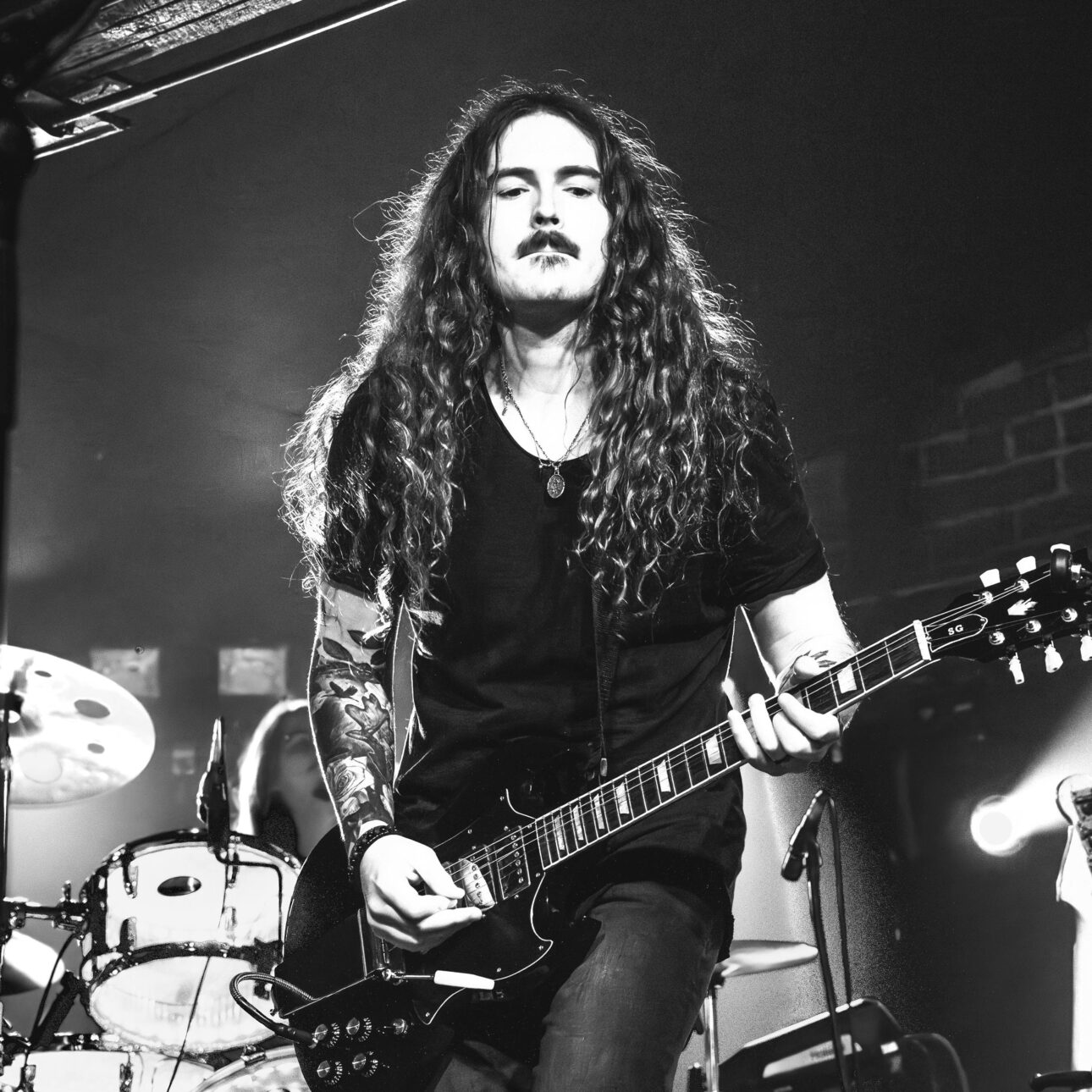
Bastion Rose
Sounds like: An appealing combination of A Perfect Circle and Bad Company produced by Grammy-winning producer Dave Bottrill, where bluesy vocals collide with dark alt-metal chord progressions in a way that sounds both fresh and familiar.
Interview (answers by frontman Austin Frink):
Describe your approach to music and how you would explain your sound to others.
It normally starts with the guitar. Riffs are the foundation of Bastion Rose. We take a lot of inspiration from bands like Black Sabbath, Tool and Soundgarden.
I demo a lot and I demo quickly. I like to work with a loop pedal to develop melodies, lyrics and layers for songs.
How did you come up with the name of your act?
The name Bastion Rose is a reflection of my personal journey and the core themes of our music. A bastion is a fortress, a symbol of strength and resilience. The rose represents life’s beauty and fragility. The name captures the emotional and spiritual struggle of finding strength and meaning in the face of loss and adversity. It’s a concept that came to me after enduring a series of difficult personal experiences, including the loss of both of my parents and a battle with cancer that threatened my ability to make music. In the aftermath, I realized that life is a gift, and like a rose, it’s beautiful despite the inevitability of its decay. The name is a promise to build upon the bedrock of that epiphany and let it be a bastion against fear and dread.
What are some artists and albums that have informed your creative direction?
Hearing Black Sabbath’s “Iron Man” for the first time was a formative moment for me. That riff, that voice, the existential darkness in the lyrics.
I think Bastion Rose is part of the long lineage of bands that came after Black Sabbath. Other bands that have really influenced the sound are Led Zeppelin, Lynyrd Skynyrd, Pink Floyd, as well as Tool, Soundgarden and Metallica.
What’s the most exciting thing happening in music right now?
It has to be the resurgence of rock in the popular mainstream. I’ve never been convinced that rock fell out of the mainstream in reality, the labels, radio stations and tastemakers just stopped betting on rock bands. It’s easier to create a pop artist. It’s easier to sell them.
For every fan of today’s big shiny pop artist, there is a community of music consumers desperate for new rock music. This is being demonstrated all over the world right now as ‘90s and 2000s era heavy rock bands sell out stadiums, and of course as the world still reels after Ozzy Osbourne’s passing.
Where do you see the music world heading in the next five years?
It should be obvious now that generative AI is complicating the world of music production and distribution. Bands like the Velvet Sundown are completely AI generated. I can’t predict all of the effects that AI generated music will have on the music economy, but one thing seems certain: it won’t help artists.
How is music helping you during these uncertain times?
Music has always been a stabilizing force in my life. It is a form of self-exploration and therapy. Honest songwriting has a way of revealing what is inside the heart, mind, and soul. That will never change.
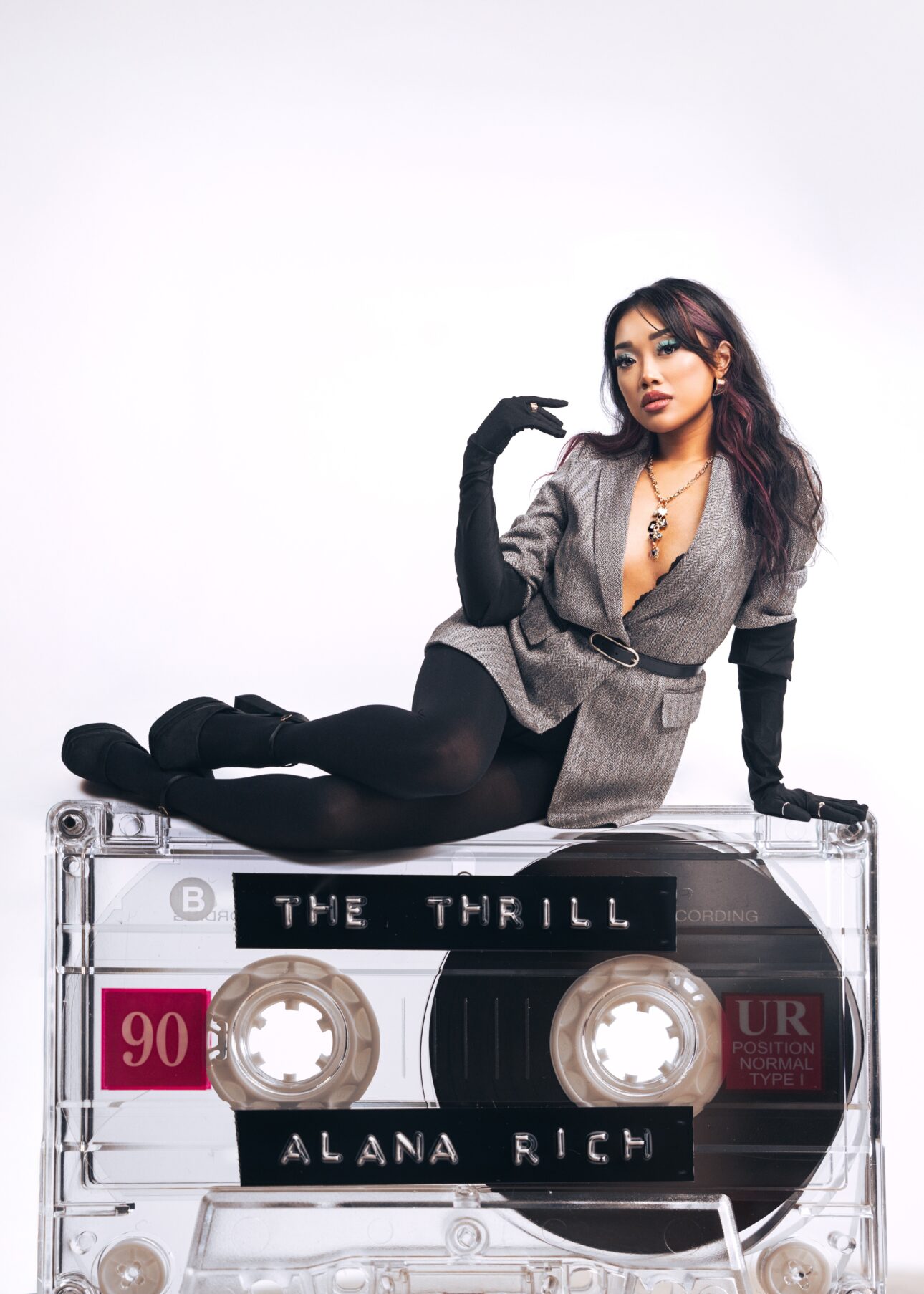
Alana Rich
Sounds like: A most excellent extension of the sound that the likes of Taylor Swift, HAIM and The 1975 have progressed over the course of these last 10 years — the “new” new wave.
Interview:
Describe your approach to music and how you would explain your sound to others.
For me, music is about chasing the feeling, whether it’s euphoria, heartbreak, enlightenment, and everything in-between. My sound lives in that world too: it’s dance-pop with a cinematic edge, where vulnerability and escapism can coexist. I want people to move, but also feel.
How did you come up with the name of your act?
Alana Rich is an abbreviation of my real name and a reminder of what I hope my music represents. “Rich” is not about materiality. It’s about depth, abundance, and living fully in your emotions and experiences. When you press play, I want you to feel like you’re stepping into a world that’s lush and unapologetic.
What are some artists and albums that have informed your creative direction?
I’m endlessly inspired by the greats and artists that tell a story and build worlds around their music. Albums like Michael Jackson’s Thriller, Elvis’ Greatest Hits, The Rolling Stones, Sadé, were often on repeat in my household and showed me that music within the pop-scope can be human and have depth. I also draw inspiration from artists who channel their stories into danceable sounds. Strong female pop artists like Selena Quintanilla, Christina Aguilera, The Spice Girls, the list goes on, taught me that it’s not always the words you say, but the energy you inject into a song and how you say it that make a lasting impact and transcend perceived barriers like language and culture. As for more contemporary artists I admire, I’d have to name drop artists like Lana Del Rey, HAIM, Børns, who carry that torch into this new era.
What’s the most exciting thing happening in music right now?
I think the most exciting thing is how boundaryless music feels. Genres aren’t walls anymore. They’re palettes. An artist can put out something that feels like a dance anthem, a diary entry, and cinema all at once, and chances are there’s an audience who’s here for it.
Where do you see the music world heading in the next five years?
I see it becoming even more experiential and immersive. Between live shows, visuals and digital spaces, I see artists creating entire worlds, and fans joining in as co-creators. I think we’re moving toward a future where music is less about consumption and more about connection.
How is music helping you during these uncertain times?
Music has always been my anchor and release, ever since I was a little girl. It’s how I make sense of a lot of what’s going on within me and outside of me. Writing these songs has helped me process the chaos and things I can’t immediately articulate, and performing reminds me that connection is still possible even when the world feels distant. It’s both a survival tool and a way of imagining a brighter future.
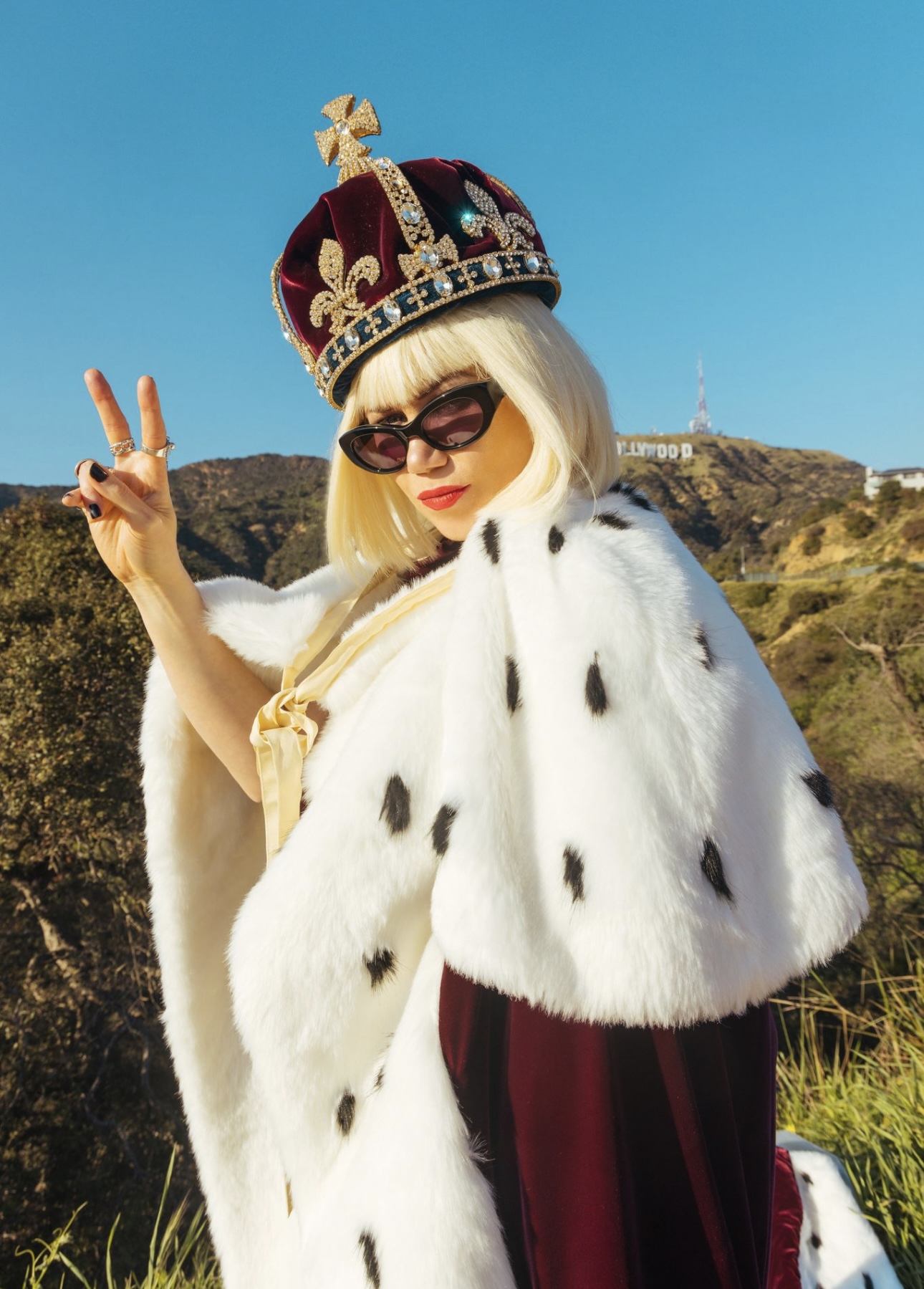
Amazonica
Sounds like: The UK’s “OG rockstar DJ,” Amazonica brings it with a sound akin to Siouxsie and the Banshees produced by Steve Aoki.
Interview:
Describe your approach to music and how you would explain your sound to others.
Music is the blood and I am the body, it is what drives me and has been my north star my whole life. It is how I understand life, my feelings and the world.
My sound is a genre bending mash of all my favourite sounds and influences. I call it ‘Apocalypse pop,’ emo rap, industrial, grunge rock, hip hop, synth hybrid of melodic emotion.
How did you come up with the name of your act?
I was called ‘Dirty Harry’ when I first got signed as a teenager but when I started DJing and being more experimental with sounds and not sticking to just rock as a format it made more sense to rename myself. I googled loads of things to come up with something buddhist, reflecting the changes in me. Then this name came up VICTORIA AMAZONICA which really resonated as Victoria was my real name I never use and AMAZONICA sounded like METALLICA, a strong name evoking the amazons also. There is a beautiful and dark legend attached to the name also which was also so poetic for me.
What are some artists and albums that have informed your creative direction?
I like raw emotion and sounds which are also super melodic. Everything from L7 and Nirvana, NIN and Led Zeppelin, Aphex Twin, XXXtentacion, Lil Peep and Juice Wrld to all the punk rock you can imagine from the Sex Pistols to X Ray Spex, Motown, The Miseducation of Lauryn Hill, Bauhaus, Bob Dylan, Gary Numan, Garbage, Blondie, The Doors, Major Lazer, Rage against the Machine, Jeff Buckley, Radiohead, Jay Z.
What’s the most exciting thing happening in music right now?
I went on tour with Scarlxrd across the USA and UK and these new artists which just get on stage with a backing track and their self produced songs that are HEAVY I think is really cool, it is kind of punk rock they don’t even want or need a band.. like 2hollis too.. young artists that are just making new genres up I think is truly exciting. On my first album the reviews were like ‘If she would just stick to one genre’ and I couldn’t understand why people were so small minded in music. Now it is the norm and the future. I’m also really into Max Cooper, Tourist, Tycho and these electronic artists who make beautiful emotive music with no vocals. Sometimes you just need the sounds.
Where do you see the music world heading in the next five years?
More cross pollination between genres hopefully.
How is music helping you during these uncertain times?
It helps me make sense of all of this and gives me voice in a world where you can feel like you are drowning.
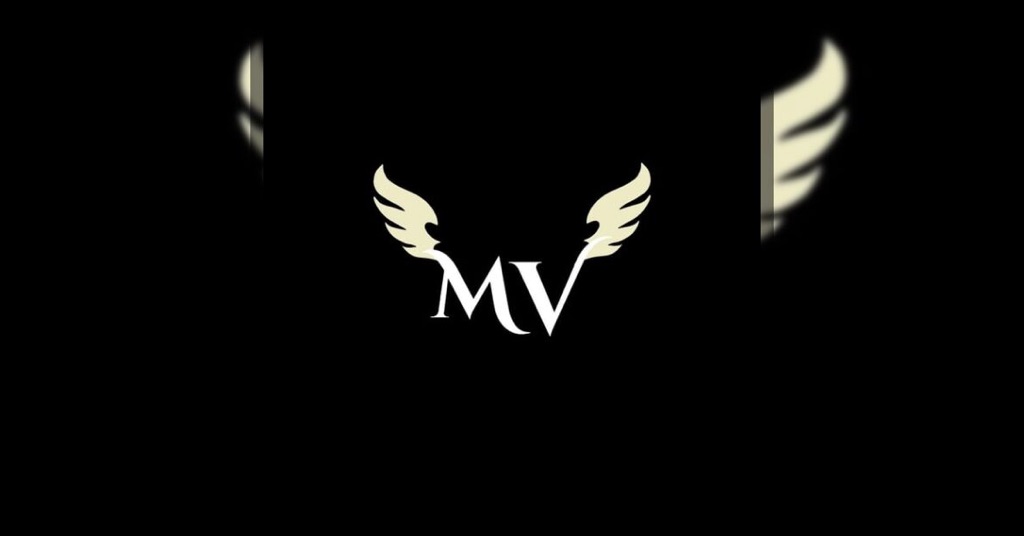
Mike Vorpal
Sounds like: Relentless noise punk with a confrontational political edge that will undoubtedly appeal to fans of old school NYC groups like early White Zombie and Cop Shoot Cop.
Interview:
Describe your approach to music and how you would explain your sound to others.
I would say that my approach to music is that you could find something worthwhile in every genre. I firmly believe that. As far as explaining my sound to other people I guess I would say start off by mixing The Cars with Black Sabbath, then add some of The Cure and Radiohead… and then probably throw a little bit of The Sword in there as well… at least that’s pretty much what the music in my head sounds like.
How did you come up with the name of your act?
It started off as my Twitter handle back in the day because my friends and I were doing a D&D podcast. People really liked how I was using “Vorpal” as a surname because in the game Dungeons & Dragons a “vorpal” sword is something that is just supernaturally sharp. It’s almost like a light saber. Then I started making music again and because I already had recognition behind the name I decided to keep it. It sort of fit very well because I’ve also always enjoyed things like White Zombie and The Sex Pistols… and the front men in both of those bands you know took ridiculous surnames as well… Rob Zombie and Johnny Rotten. So I’m sort of following suit that way I guess.
What are some artists and albums that have informed your creative direction?
Wow, the answer to that question in and of itself is a dissertation! I would say that some of the artists and albums that have influenced me and my creative direction would be sort of those, like, landmark albums for bands. You know? Those albums that sort of push them over the edge and kind of solidify them as the force that they were known as. Albums like Nirvana – Nevermind, The Beatles’ Sgt. Pepper’s Lonely Hearts Club Band, David Bowie’s Ziggy Stardust, Nine Inch Nails’ The Downward Spiral… these are all albums that sort of broke these bands out and made it so they couldn’t be ignored anymore. I wouldn’t even say it was popularized by going mainstream. It just went mainstream because it was just so much and so different that it couldn’t be ignored… and I think that’s kind of what really good art is. Something that whether you like it or not, you can’t look away and you can’t ignore it. It’s just captivating. So, I would say any rock album that was a major breakthrough for a band. You know that could be Pink Floyd’s The Wall, The Cure’s Disintegration, Led Zeppelin II… Led Zeppelin IV! Any record that hit that way or that you know, took a band in a new direction and sort of redefined them. Radiohead’s Kid A is a good example for that. Anything like that will influence my creative decisions.
What’s the most exciting thing happening in music right now?
I really like how there seems to be a growing appreciation for rock music over the last few years. I’ve seen rappers wearing rock T-shirts, as well as other artists that I wouldn’t expect to really exhibit those influences. If you look at Bryce Savage, you know he’s just like a super smooth R&B singer and he even put some elements of Pat Benatar in his music… And then you see a picture of him and he’s wearing like Guns N’ Roses T-shirts and Iron Maiden T-shirts, and I think that’s pretty cool! I like that people are re-embracing rock ‘n’ roll!
Where do you see the music world heading in the next five years?
I think we’re gonna end up getting some kind of genre of music that we haven’t experienced yet. You know, like when Jimi Hendrix and Led Zeppelin and Black Sabbath came out… it was the late 60s and you have these loud distorted guitars and such! I mean it just wasn’t there yet! Before those guys you had bands like The Kinks… where Dave Davies would slash the speakers in his amp with a pocket knife to get that sound! There’s no way anybody could’ve predicted what was coming based on what popular music was just a few years before. So, I think we’re due for something like that. I don’t know what it’ll sound like… I think probably something like Alisxn Gray, but we’ll see what happens!
How is music helping you during these uncertain times?
Oh the same way it always has. Music is… it’s a wonderful distraction. And at the same time, if you play it yourself and make art with it yourself it can be extremely cathartic. So, there are… you know, the current circumstances of the world. The geopolitical climate, the erosion of the natural climate and everything else. But we all also have personal things going on in our lives to add to all of that. So, music has always been there to kind of help me through that. And if that personal stuff isn’t at the forefront, then it’s always there to help me through the bigger global problems that might be sort of bearing down on me. I hope it’s that way for everyone else, too.
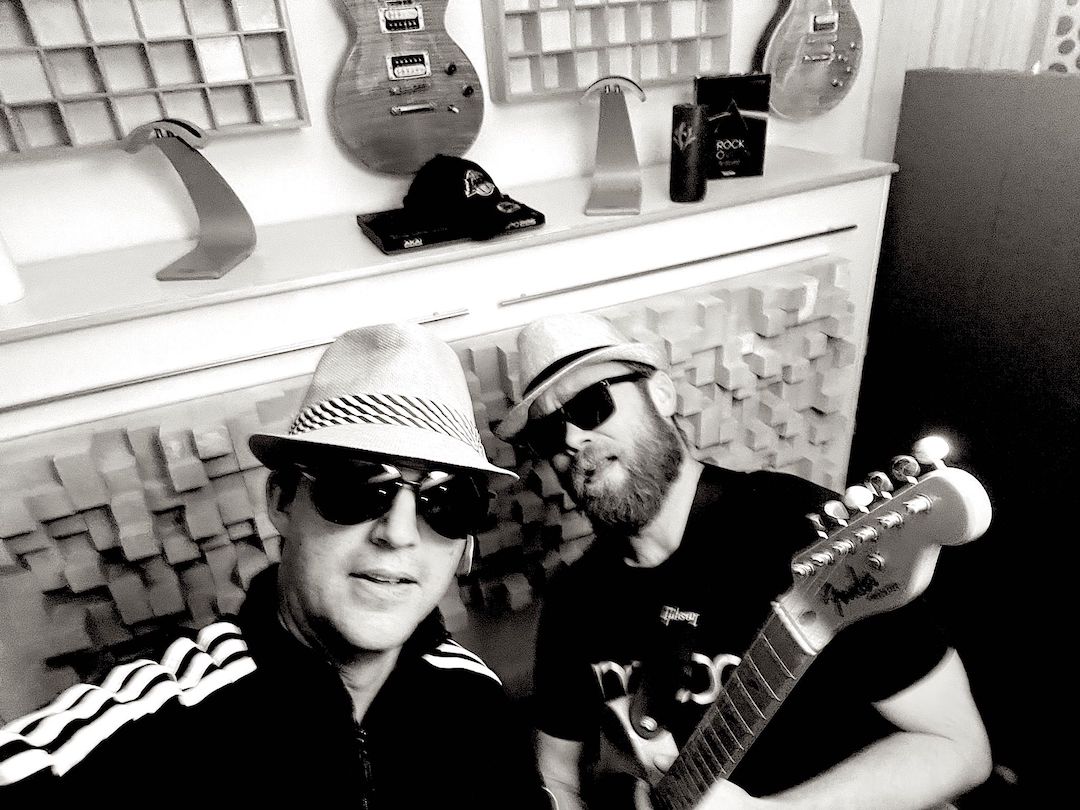
Bromsen x Reatch
Sounds like: The Pet Shop Boys if they were signed to Wax Trax and were based out of Berlin, Germany.
Interview:
Describe your approach to music and how you would explain your sound to others.
Bromsen: We believe that the best ideas emerge from the maelstrom of emotions bubbling up from the subconscious. How this unfolds can vary—sometimes it starts with guitar chords and vocals, other times with a detailed instrumental idea that sets the tone. In the case of [our album] Data Highway, it was the latter.
As Bromsen, we often fuse synthwave textures with raw rock energy — something we like to call crafting in the Bromsen Forge. Collaborating with Reatsch added a thrilling new layer to this process. The chorus, for example, feels like a gateway into a futuristic city. What connects us with Reatsch is a shared purism and a deep belief that music must come from the heart. We have no time for anything that feels like it came off a drawing board. So, to describe our sound in short: synth-driven beats and wavey electronics colliding with the spirit of rock and the rhythm of wild beat literature.
Reatsch: Every song starts differently, sometimes it’s a small drum or melody loop, sometimes it’s a melody in my head that I record into my DAW with my cellphone.
I always have analog recorded sources in my projects, not only synthesizers but sounds getting captured through a microphone. This could be a very old telephone mic or a sm57 or even a high end mic like a u67. In the scenario of Data Highway I just started using the stock sound of my Dave Smith Mopho (Rest in Peace genius). I then send the files to Bromsen and this way the song developed being send back and forth for a bunch of times.
This approach is super exciting, as you get new views and ideas every time something new was added or being removed. I tend to work like this a lot, it’s just awesome to have the possibility to do so.
How did you come up with the name of your act?
Bromsen: The name “Bromsen” was born on a legendary train ride with our old band — an endless stream of jokes, stories and laughter. Somewhere between the wagons, these oddball names started flying around and Bromsen stuck. In a way, it reflects our approach to music: spontaneous, slightly surreal, and rooted in real connection.
As for Reatsch, he can speak for himself — but his name has definitely earned a place in our creative orbit.
Reatsch: I started song writing at the age of 11. As I evolved as a rap artist I needed a name that would fit my personality and style. “Reatsch“ was born because I tried to be “out of reach“ for everyone.
I did not want to let go of the name after I quit rapping and became an Engineer and producer, so I ended up using the same name people used to call me.
What are some artists and albums that have informed your creative direction?
Bromsen (Karlo): Artists – Nirvana, John Lennon, Luka Bloom, Ennio Morricone
Albums – Rubber Soul, Pet Sounds, Definitely Maybe
Reatsch: One of the producers that gave me the most chills in the past years was Pretty Lights.
After finding his absolute masterpiece of an album A Colour Map of the Sun I realized how much more fun it makes to create Sounds on your own. Be it drum breaks or just silly sounds recorded through a phone and then being used for a personal Drumkit.
What’s the most exciting thing happening in music right now?
Bromsen: Bromsen x Reatsch
Reatsch: Seeing people hating the AI because they are scared of it.
Where do you see the music world heading in the next five years?
Bromsen : It’ll ride the Data Highway for a while, then settle on a quiet limb, waiting for the monkey to arrive with a banana. If the banana and the music meet, things might get strange — and that’s usually when the new genres are born.
Reatsch: I wish for less or even no support of AI generated music at all on every major or small platform there is.
How is music helping you during these uncertain times?
Bromsen: More than we can say. If you feel and believe in music the way we do, it opens up a portal — allowing you to express what words alone never could. That release can be healing. And if we’re lucky, our music helps others do the same: unlocking lost spaces in the heart and giving the soul a bit of light to hold on to.
Reatsch: Music connects all musicians, no matter what genre you’re in, so I think connecting will always be the best thing to do no matter what.
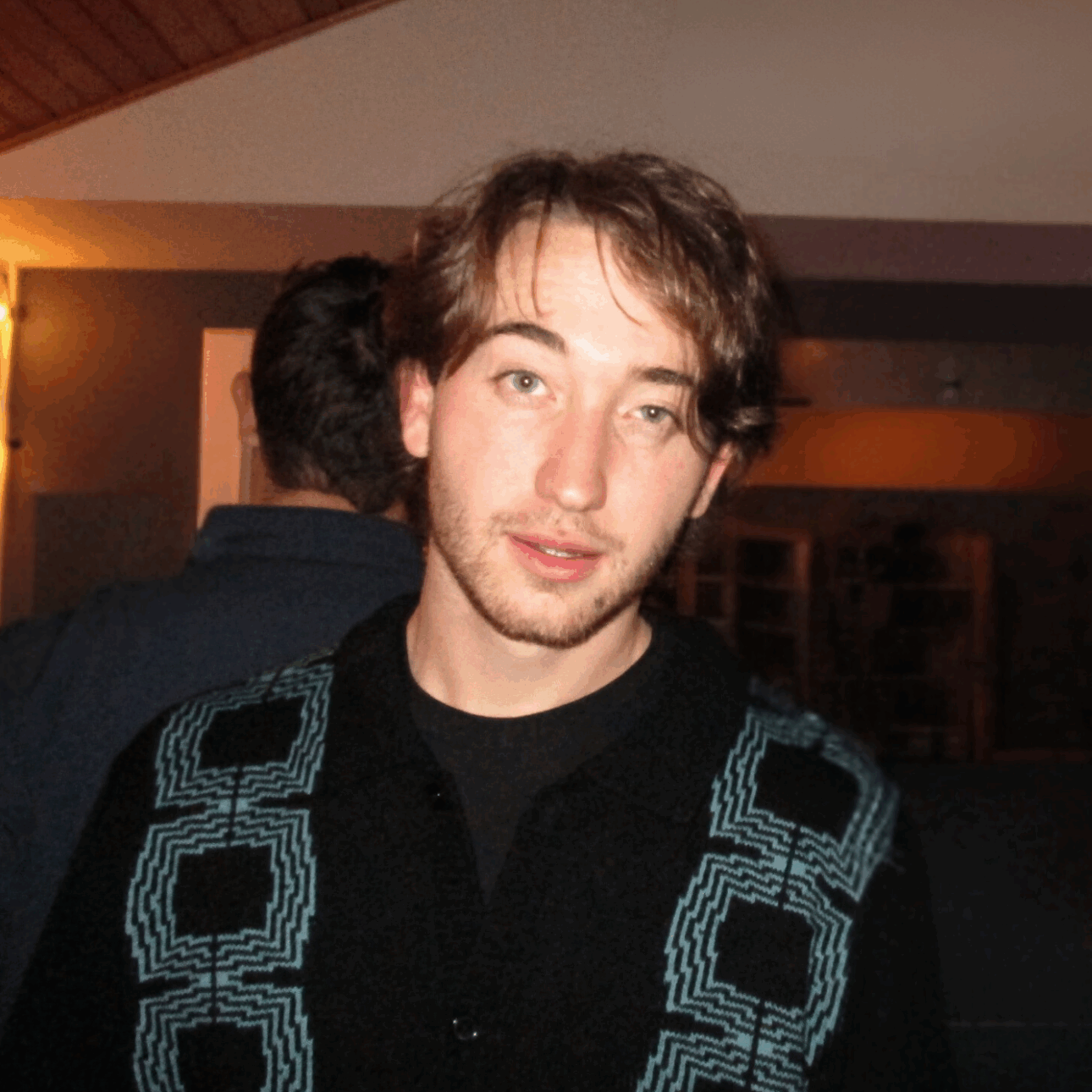
Woodstone
Sounds like: The ever-changing sound of a 23-year-old sonic chameleon rooted in indie rock but expands his sound to emulate everything from Travis Scott to Tom Verlaine.
Interview:
Describe your approach to music and how you would explain your sound to others.
My approach to music is pretty simple. It mostly involves letting life flow through me and waiting for creative inspiration to strike and as soon as it does I create. I’ll go months without any song ideas but then one day I’ll have 5 songs written. I’m learning not to force it and allow myself to be a vessel of creative ideas. I would say my sound is Indie Pop/Rock/Alternative but with Classic Rock at the root of it all. I tend to aim for more of a raw sound as opposed to polished because to me music is all about imperfections.
How did you come up with the name of your act?
Woodstone is the street I grew up on. I changed the name from “Sean Eversen” because I wanted it to sound like a band or eventually become more of a collaborative project where other band members can contribute to Woodstone. I’d love to have a Woodstone song where I don’t sing and it’s someone else’s idea. In a way I want that name to always hold weight over how large of an audience I obtain. Keeps me grounded to making music in my parent’s basement. Also me and my friends used to get stoned in the woods a lot so it works in multiple ways.
What are some artists and albums that have informed your creative direction?
The artists that have influenced me the most would have to be The Beatles and Led Zeppelin. They are the blueprint pretty much play Revolver and Houses of the Holy on repeat. I always say that my all star band would consist of Robert Plant, Stevie Nicks, Paul McCartney, Jimi Hendrix, Stewart Copeland. I guess I want my music to sound like a big mesh of influence. My sound varies from album to album. The first album was Post Malone, The Weeknd, Travis Scott, Kid Cudi. The second album was MGMT, M83, Tame Impala, Foster the People. The third album was The Police, The Beatles etc. The fourth was Oasis, Led Zeppelin, RHCP, Bon Iver. The influence changes from song to song but somehow I feel I’ve made it work into cohesive projects. As my influences seem to travel back in time as I continue to develop my own sound, I strive for a maturity in my music. I do believe I’m getting closer each day to being the artist I always dreamed of being.
What’s the most exciting thing happening in music right now?
The most exciting thing happening in music right now is the amount of rock bands coming out of NYC. It’s cool to witness that rock lives on and simply the exploration of sounds that are motivating these artists to push the sound forward is amazing to watch in real time.
Where do you see the music world heading in the next five years?
In the next five years I see the music world headed for a drastic shift. I think the industry will be completely unrecognizable. I think we are about to see the greatest change in how music is consumed. People are itching for the real thing and are tired of the over-saturation. If not me someone will create a movement or a genre that no one has ever seen or heard before. With the rise of AI it might make it easier to become an artist but the real art will always shine through.
How is music helping you during these uncertain times?
Music is everything during these tough times. In the world it seems as if it’s all going to shit. In my personal life I’ve had one of my most difficult years between career, relationships, etc. Music is therapy, it’s the one thing that keeps it all together. I wouldn’t be here without it. I’m able to pour my emotions into audio. How cool is that? It’s of the utmost importance that we share music with each other. Connection is what makes this life worth living and I plan to connect with as many people as possible.
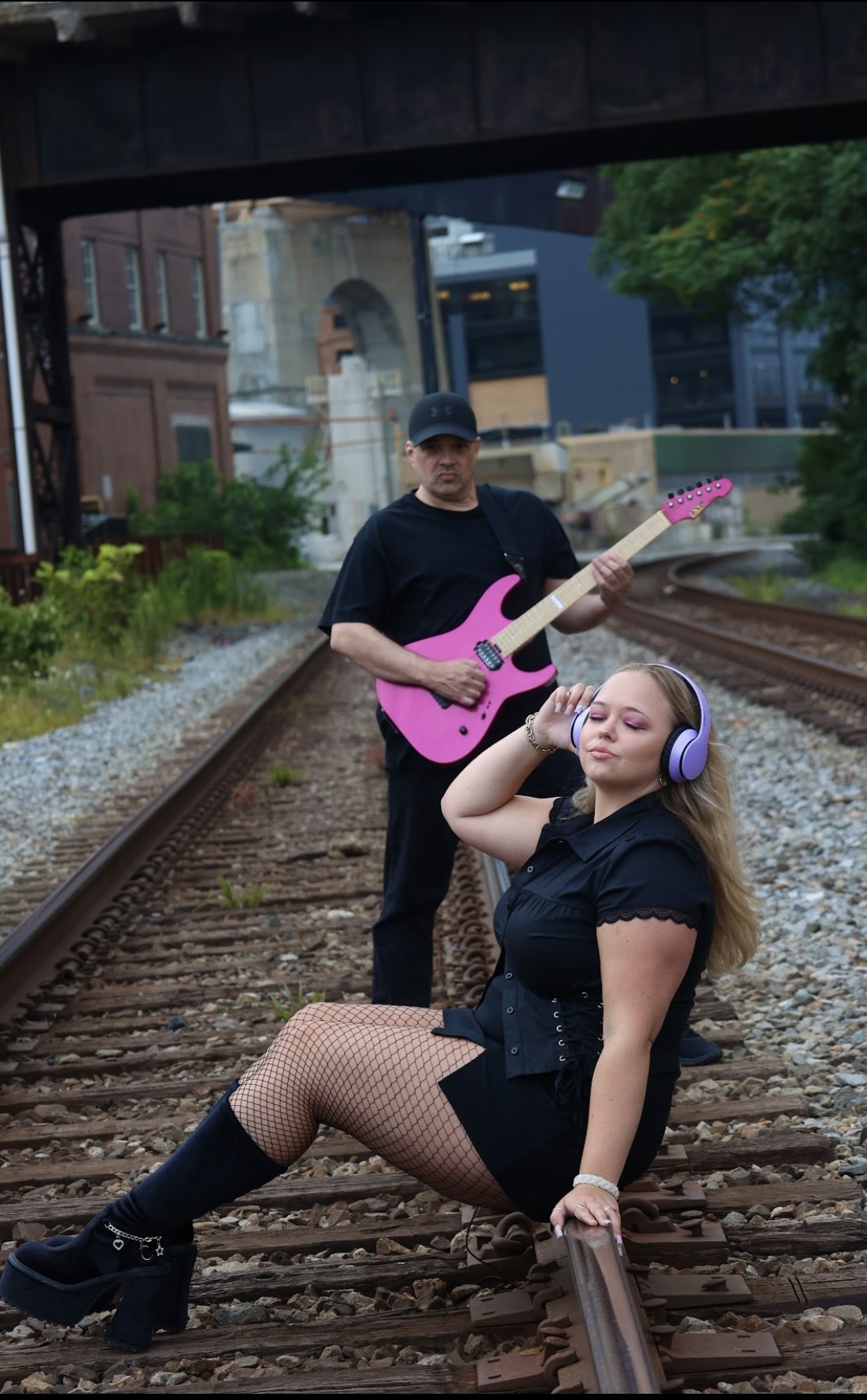
Brain Dead By Sunday
Sounds like: A combination of Blondie cool and the hard rock grit of Stone Temple Pilots with a little Garbage vibe thrown in from a band coming out of Pittsburgh, Pennsylvania.
Interview:
Describe your approach to music and how you would explain your sound to others.
Joe: When we compose — it starts on guitar as a simple melody. As the song progresses Alexis and I tend to kick it back and forth at each other — intuitively building off the initial idea. Our individual internal melodies tend to fit each other’s abstract minds. After a few or several revisions. We begin the tedious task of recording and producing the song in our studio. B.D.B.S sound is a raw and straight in your face rock n roll. I think the vocals could be described as a haunting vibe while the guitar is old school heavy riff rock.
How did you come up with the name of your act?
Alexis: I was in school and working weekends when we first started to work on this album so I was pretty exhausted by the time we were able to etch out some time for recording Sunday nights. One week — I think it was during midterms — I was pretty burned out. I texted my family “you know I’m probably going to be brain dead by Sunday”. I looked at my text and thought, “ Hmmm. That sounds like a badass band name”. I pitched it to Joe and he liked the sound of it, so it stuck.
What are some artists and albums that have informed your creative direction?
Joe: It really is a collective of musical influences that we honed to come up with our own style. I think we have a touch of Black Sabbath, vintage Judas Priest, Blondie, Pat Benatar, The Pretty Reckless and Ghost.
Alexis: I’m a huge Twilight fan so Paramore definitely has some inspiration in our sound -and there’s even a touch of The Hex Girls from Scooby-Doo.
What’s the most exciting thing happening in music right now?
Alexis: I’m loving how electronic music / sound is being combined with metal/heavy rock music. It’s a fresh new sound- notably I really enjoy what Point North is bringing.
Joe: The independent artist movement for me. That is where you will find music originality these days. A tremendous underground movement with lots of untapped talent.
Where do you see the music world heading in the next five years?
Alexis: As everything does, I think it’s going to continue cycling through what was popular before- Rap was big for awhile, now 80s hairband and garage rock bands are making a comeback and we might see another wave of that type of music get big again.
How is music helping you during these uncertain times?
Joe: I don’t believe our current times are any more uncertain than previous generations or centuries before us. Looking back on history there was always some uncertainty lingering in the shadows of mankind. I believe for those who are passionate about music it definitely heals the human soul and guides us through times of trouble in our lives.
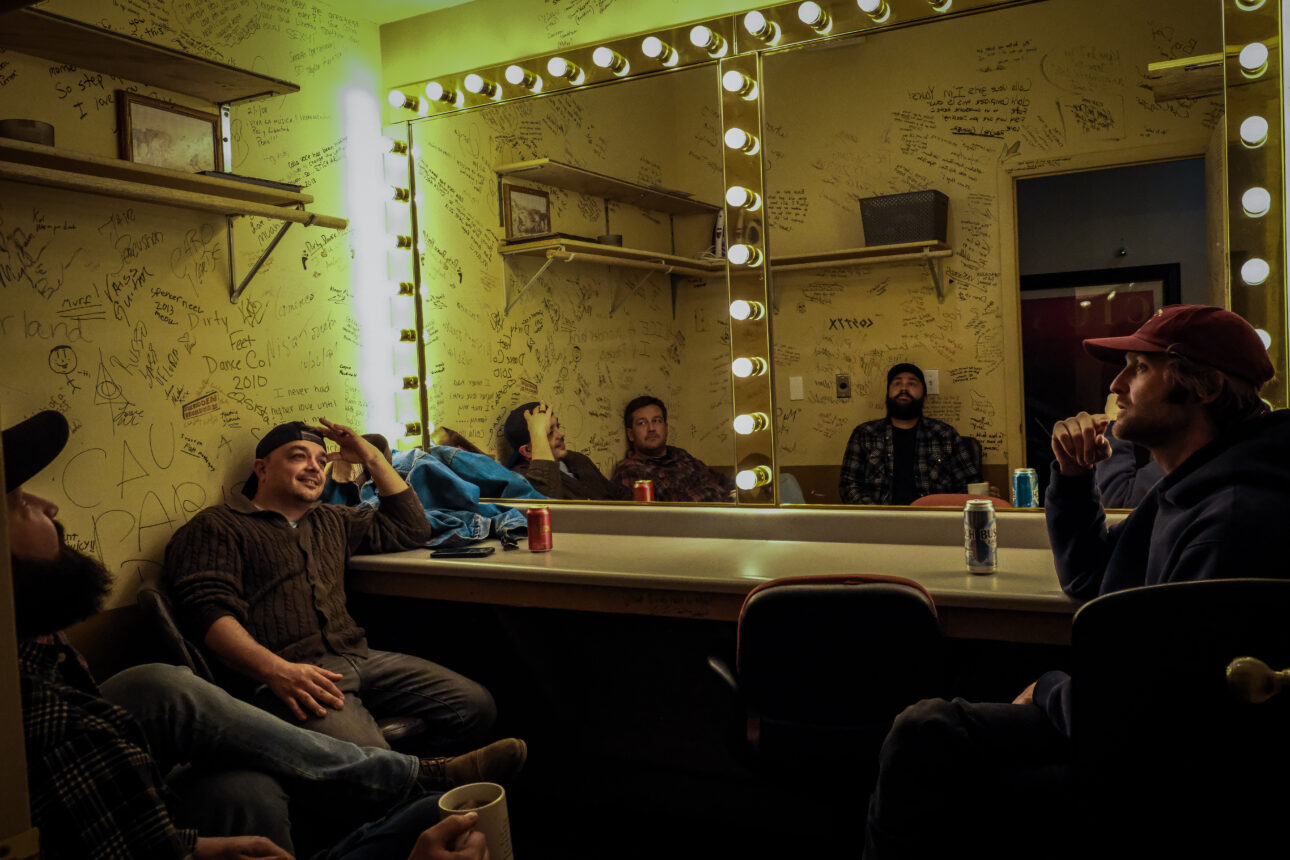
Mylo Bybee
Sounds like: The propulsive indie pop sound of the Pacific Northwest is alive and well and in the amplifiers of Mylo Bybee, whose allegiance to sonic exploration without losing one’s sense of melody puts them in the same conversation as Modest Mouse and Death Cab despite originating from Boise, Idaho.
Interview (Answered by frontman Tyler Schlagenhauf):
Describe your approach to music and how you would explain your sound to others.
Our approach is really about honesty and energy. A lot of our songs start with a feeling like frustration, nostalgia, joy, even boredom and we just chase that feeling until it turns into something bigger. We try to keep it raw but still sharp, like every note has some urgency behind it. There’s this balance we’re always chasing between being locked-in and being on the edge of falling apart. We have developed a common language within the band that most others couldn’t understand. That’s where the magic happens for us.
If I had to explain our sound, I’d probably say it’s rock that’s equal parts grit and vulnerability. You get the heavy riffs and big rhythms, but then you’ve also got lyrics and vocals that aren’t afraid to be unapologetic. Someone once told us it felt like “controlled chaos,” which we took as a huge compliment. So yeah, imagine chaos that shows up to rehearsal on time, that’s pretty much MYLO BYBEE.
How did you come up with the name of your act?
People always expect some epic backstory here. The truth is way less glamorous and way more Idaho. We’re from a part of the country that actually invented a pretty legendary dish popular in the Pacific Northwest called the finger steak. Yes, it is exactly what it sounds like, breaded steak. At some point we learned that finger steaks were first created by a guy named Mylo Bybee, right here in our own backyard.
When we went in to record our first EP during lockdown, we didn’t even have a band name yet. Someone tossed out “Mylo Bybee” in the studio, we all cracked up, and it just stuck. It rolled off the tongue, it felt unique, and before we knew it, it became ours. We’re still trying to figure out how to work finger steaks into our merch, but let’s be honest , it’s not the most appealing design.
What are some artists and albums that have informed your creative direction?
We all bring pretty different influences to the table, and I think that’s why our sound comes out so dynamic. For me, bands like Manchester Orchestra, The Early November, The Appleseed Cast, The Dear Hunter, As Tall as Lions, Noah and the Whale and, of course Built to Spill (gotta represent Boise) have all left a mark. I’ve always been drawn to smooth vocals and that mix of heavy riffs, precise rhythms, weird little left turns, and big melodic vulnerability.
I’m sort of a malfunctioning compass when it comes to music and drift in a lot of directions, but it all feeds back into what we create. So while those indie/rock bands are the backbone of how I write, I’ve also been shaped by the bigger-than-life pop/rock magic of Michael Jackson, Prince, Queen, Styx, and then the softer singer-songwriter vibes like James Taylor and Jim Croce. It’s all in there with the intensity, the melody and the heart.
What’s the most exciting thing happening in music right now?
I think the most exciting thing right now is just how much access there is for both artists and fans. You don’t have to wait around for a label or some executive to give you permission to put music out into the world. You can write something in your bedroom, drop it the next day, and if it connects with people, you’ve got momentum. That’s a crazy kind of freedom that just didn’t exist in the same way before.
On the flip side, it’s amazing as a fan too. You can discover new artists constantly, from every corner of the world, and they’re all just one click away. And yet, despite all the tech, the hunger for live music has never been stronger. I love that we’re seeing kids go wild for DIY shows, basement gigs, and festivals while also having access to the biggest artists on streaming. It’s chaotic, it’s nostalgic, and it’s awesome.
Where do you see the music world heading in the next five years?
I think genre is going to keep blending until it almost doesn’t matter anymore. We’re already seeing it with rock bands pulling from hip-hop rhythms, rappers pulling from punk energy, pop artists diving into indie and electronic textures. People don’t really care about labels anymore; they just want songs that make them feel something, which I love. That’s freeing as an artist because it means we can experiment and grow without worrying if it “fits” in the right box.
I also think live music is only going to keep growing in importance. No matter how good streaming gets, nothing compares to standing in a sweaty room with strangers, screaming lyrics at the top of your lungs. That’s the kind of thing no algorithm can replace. I think in five years, those real, human, in-person connections are going to matter even more than they do now.
How is music helping you during these uncertain times?
I’m a family first person. Raising a young son with my amazing wife has been the most amazing experience of my life. Aside from them, music has always been my anchor. Writing and playing has always been this pressure valve for all the tension and uncertainty, and honestly, it’s been a lifeline. When everything else feels shaky, getting in a room with the band and making noise together makes things feel a little more solid. Music is my best outlet for actually organizing and conveying my thoughts, emotions, feelings, in the most impactful and approachable way.
It’s also kept us connected, not just to each other as musicians, but to our community and people we’ve never even met before. When someone messages us saying a song hit them at the right time, that’s proof that what we’re doing matters in a bigger way than just us. Music is therapy, escape, fuel, and connection all at once. When the world gets weird, and let’s be real, it’s been pretty weird, music’s the one thing that still makes sense.
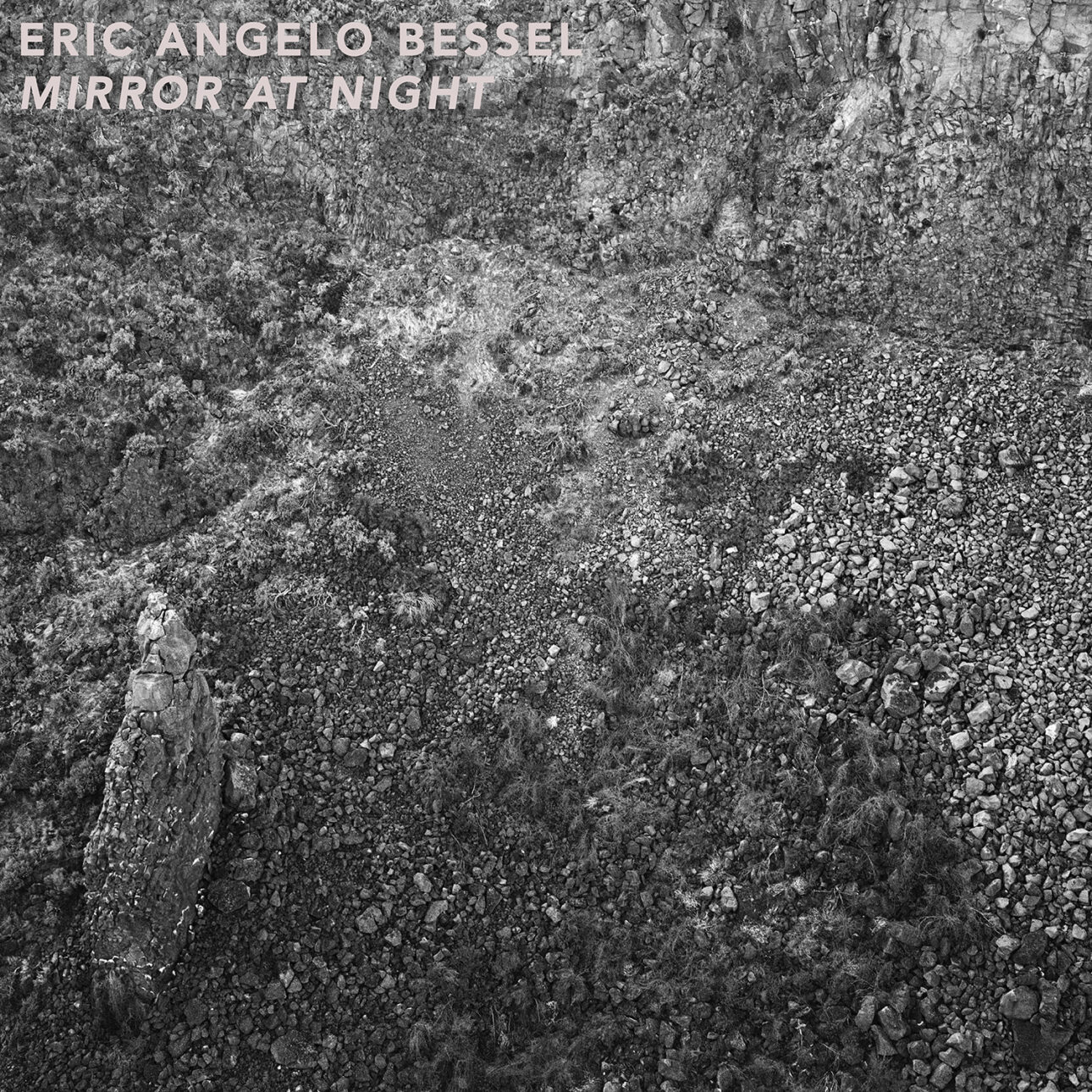
Eric Angelo Bessel
Sounds like: Reminiscent of The Caretaker in utilizing modern equipment to create this ghostly sound that could easily be from the turn of the 20th century as it could the turn of the 22nd century.
Interview:
Describe your approach to music and how you would explain your sound to others.
I do most of my songwriting in the early morning before the day sets in. My songs are influenced by the fleeting snapshots of dreams, so the closer I am to them the sharper they appear. I return to the songs late at night when I have some objectivity to refine and expand upon them. My sound is ambient, ethereal and gothic. On an esoteric level, the songs are atmospheric, shifting and intended to transport listeners somewhere else.
I compose using a pair of digital Mellotrons (proto-sampling keyboards), an Alesis Micron (keyboard synthesizer) and guitars, then carefully dissolve everything into the nebulous songs that appear on the album. There are a lot of pedals and some rack effects at this stage; however, sometimes audio signals passing through an always-on circuit make the magic happen. I read somewhere that the sonic energy analog equipment generates has a kind of soul, and can evoke a physiochemical reaction within the listener.
How did you come up with the name of your act?
I use my full name, just like I do for my visual art, so it’s easy for people to find my work across media. On both the forthcoming record, Mirror at Night, and its predecessor, Visitation, I took an active role in the audio recording, mixing, and production; I also created the artwork.
What are some artists and albums that have informed your creative direction?
While I was writing and recording the songs that became Mirror at Night, I was listening to contemporary artists Naujawanan Baidar, Ak’chamel, Faten Kanaan, Daigo Hanada, and Sheherazaad. I often interspersed these with archival records from Shelter, Bluetip, Swans, Gavin Bryars, Ettab, Faiza Ahmed, Warda and Nagat.
What’s the most exciting thing happening in music right now?
The tools to do-it-yourself are readily available, and a desk can be transformed into a recording console. As a creator, it has become important for me to take on the production process and further curate the experience. I taught myself how to record, re-amp, and mix, which has shaped the way that I write and compose.
As a record collector, I really appreciate the reissues of 70s and 80s world music, as well as 90s and early 00s alternative rock. It’s inspiring to have these albums readily available again, and some for the first time on vinyl.
Where do you see the music world heading in the next five years?
I would love to see physical media challenge streaming media. Vinyl records, compact discs, and cassette tapes give physical presence to sound; they ground it in a room. As tangible formats, they’re contemporary cultural artifacts. In the years ahead, I predict that the music world will favor more immersive experiences – not just in arenas, smaller venues will have to adapt, too. This doesn’t necessarily mean three-dimensional light shows or the singer’s likeness projected on a 40-foot screen. It will be up to the artist to curate the environment beyond their setlist. Every detail matters, and audiences will expect these developments in the years ahead.
How is music helping you during these uncertain times?
I’m an avid listener and rely on music to take me places outside of time and into memory. We know that music activates the emotional center of the brain, flooding it with glimpses of experiences and feelings. Music can channel our past, and in the present, it constantly carves new memories for our future selves to recall. At its best, music taps into the collective consciousness, helping us remember we are spiritual beings having a human experience.
Groover connects independent artists with music industry professionals to accelerate their careers. Their goal is to empower independent artists by providing a platform that connects them with the best curators, radio, media, labels and other music pros to receive guaranteed feedback and exposure.
Over 600,000 artists use Groover to connect with 3,000+ professionals across the globe. Artists have received over 6M+ pieces of feedback, 1M+ shares (e.g. playlists, reviews) and 1,500+ label contracts — all thanks to Groover!


Leave a comment